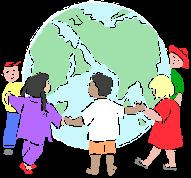I can say that I wasn’t sure I was interested in reading this book. Many books I have picked up to read I have put down and left because the writing style was cumbersome, extremely technical and boring. I started reading and was hooked. This book is different. It explains in a very understandable and interesting way a huge social problem facing Mexico and the United States – the immigration of the Mexican people into the United States. This book creates a personal connection for the reader to the people of Mexico and their plight to find a decent life.
Usually listening with just one ear while I am busy doing another task, I have heard the various reports on the radio and television about the Mexican immigration problem here in the United States. Some employers are paying undocumented workers below standard wages and they are sending that money back home to Mexico, thus removing that currency from our states and Nation. This practice also keeps the states and Federal Government from collecting employment and sales taxes needed to support the government. This reduction or lack of tax money hurts education, medical services and other governmentally funded systems that provide services to all – including the undocumented immigrants. Until reading this book, this was my stance on immigration.
But, as with anything in life, there is always more than one perspective to something. Mexico is losing the very people it needs to develop it's own country. The young men and women who emigrate to the U.S. may send money home; but, this does not help bring a self-sufficient economy to their country.

The immigration of people into the United States boils down to people seeking to fill Maslow’s hierarchy of human needs. As the diagram shows, humans go up through the needs starting first with the basic physiological needs and perhaps reaching self-actualization. Humans start by wanting to fulfill the physiological and safety and security needs; but, as they gain those, they strive for the others.
Mexico failed to provide their citizens with the ability to fill their needs, so their citizens are coming here to do so. The Quinones (2007) book talks about the corruption of the political system in Mexico and how it takes advantage of the poor. The people in power keep the money and do nothing for the poor. They make promises of roads and public services but never follow through. Instead, the immigrants here in the U.S. send their money back to Mexico and the families there use it to build homes, roads, and to fulfill their basic needs. So, we see how our money and some of our governmental income disappears into Mexico. Maybe if they were allowed to legally come into our country with their families, the tax money would stay here and it would not burden our governmental system as it does now.
If we could help the immigrants become educated, they could understand the corruption of some of their leaders and try to make a change. They could learn how to participate in and run their government and maybe lead Mexico to a better future. They could create a future where they don’t have to leave their homeland to meet their basic needs.
As educator’s we have an opportunity to help develop educated, problem solving individuals. We are helping to shape the future through these students; so, it is our responsibility to give them the skills and tools to make a better future for themselves and our global society.
As a post note, the students who come into your classroom need their basic needs met in order to be able to relax and learn. See page 15 in "Reading, Writing, and Learning in ESL" by Suzanne F. Peregoy and Owen F. Boyle (2008).

Excellent insight! My grandparents were immigrants (on both sides of the family) and I am a first generation U.S. born citizen. I can understand also, the need to seek a better life in a new country and agree with your thoughts and reflections.
ReplyDeleteI agree with your thoughts and reflections. My grandparents (on both sides) immigrated to the U.S. As a first generation U.S. born citizen, I can see the need for seeking a better life. Your reflections are excellent and illustrate insight and personal thought.
ReplyDelete